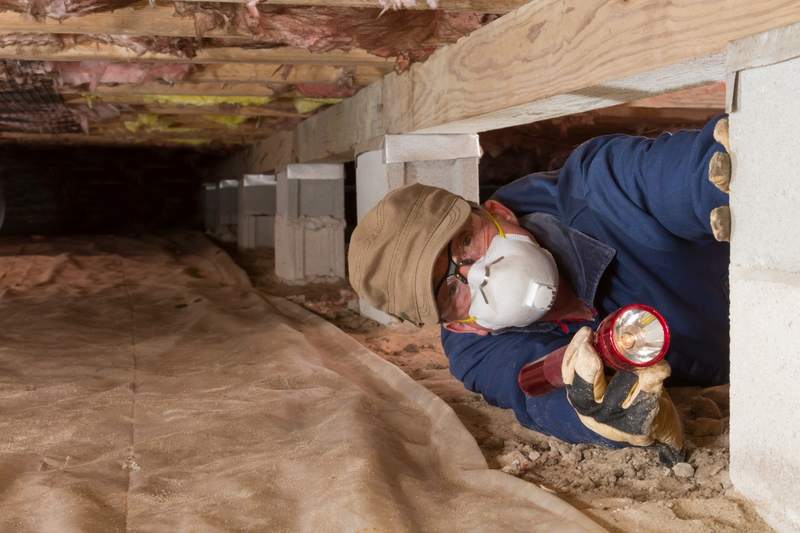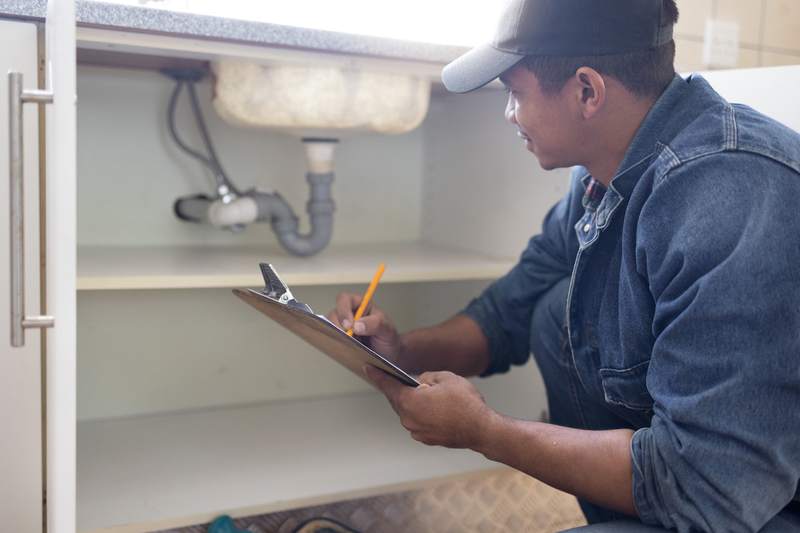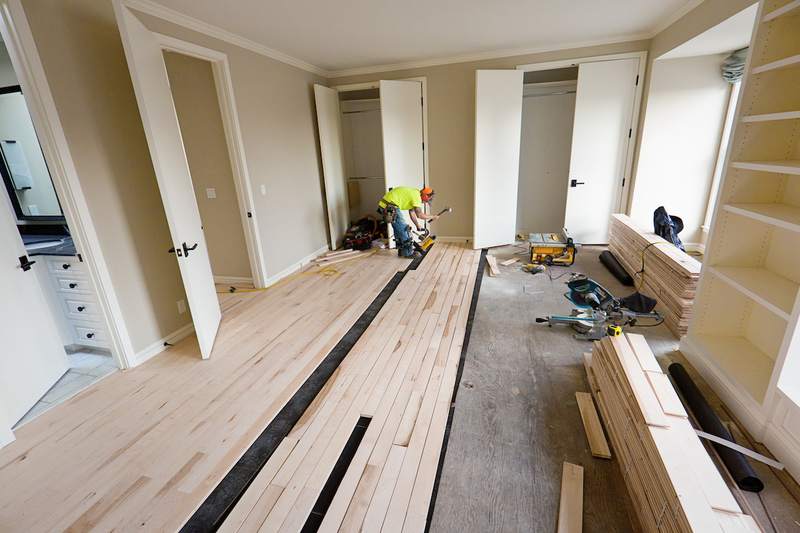
If your home or possessions are damaged or destroyed by a flood or an earthquake, your homeowners insurance won’t cover any losses. To be covered in the event of those disasters, you’ll have to purchase separate coverage.
Though you might not be too excited to pay the additional costs, any damage from a disaster could be far more expensive than your insurance premium. Here’s a look at how earthquake and flood insurance work, and why the separate coverage can be worth purchasing.
Do I Need Earthquake Insurance?
Earthquake insurance is important because it decreases the financial burden you’ll face if an earthquake strikes. It’s especially important if you live in an area that’s prone to tectonic activity.
In 2023, the United States Geological Survey reported that homes in 42 states are at risk of incurring damage from an earthquake. Despite this, only 23% of American homeowners who have homeowners insurance also have earthquake insurance in 2020, according to the Insurance Information Institute. A reason for this is that many people aren’t aware that their homeowners insurance policy doesn’t include coverage for earthquakes.
In the United States, most earthquakes occur west of the Rocky Mountains. According to 2022 data from the U.S. Geological Survey, the 16 states with the highest risk of earthquakes are:
- Alaska.
- Arkansas.
- California.
- Hawaii.
- Idaho.
- Illinois.
- Kentucky.
- Missouri.
- Montana.
- Nevada.
- Oregon.
- South Carolina.
- Tennessee.
- Utah.
- Washington.
- Wyoming.
The research also found there’s a 72% chance that an earthquake with a 6.7 magnitude or larger will hit the San Francisco Bay Area in the next 30 years.
The eight states that were not found to have earthquake hazard levels are:
- Florida.
- Iowa.
- Kansas.
- Louisiana.
- Michigan.
- Minnesota.
- North Dakota.
- Wisconsin.
Here are some factors to consider when deciding whether you need earthquake insurance:
- How close is your home to active fault lines?
- How common are earthquakes where you live?
- Was your home built with earthquakes in mind?
- How strong is the structural integrity of the home?
- How much would your home cost to rebuild?
- How much time has passed since the last earthquake?
- How much will it cost to insure the home?
You can also take a look at this map from the Federal Emergency Management Agency that shows the level of earthquake risk around the United States.
How much earthquake insurance coverage do I need?
The amount of earthquake insurance you’ll need depends largely on the value of your home and your possessions.
You’ll be choosing from three different types of coverage:
- Dwelling coverage. This covers the cost of repairing or rebuilding your home. You’ll need to pay a percentage deductible that typically ranges from 5% to 25%.
- Contents coverage. This covers the cost of repairing or replacing any possessions damaged by an earthquake, including furniture and appliances.
- Additional living expenses coverage. Also known as “loss of use” coverage, this takes care of additional living expenses if you need to relocate while your home is being repaired.
Consider how much it would cost to repair your home from earthquake damage or to replace any destroyed belongings. Also, make sure you have enough insurance to cover what it might cost to find temporary housing.
There are also three different levels of coverage:
- Actual cash value. This coverage will reimburse you for the cost of rebuilding or repairing the home or replacing possessions — but only after depreciation has been deducted.
- Replacement cost. This coverage will reimburse you for the cost of rebuilding, repairing, or replacing without deducting depreciation.
- Guaranteed/extended replacement cost. This is the most extensive type of coverage, as the insurance will pay out whatever it costs to rebuild, repair, or replace — even if it exceeds policy limits.
“It’s essential to assess the potential costs of rebuilding or repairing your home in the event of an earthquake and choose coverage accordingly,” says Gregg Barrett, CEO of WaterStreet Company, a group of property and casualty insurance industry experts based in Kalispell, Montana.
Do I Need Flood Insurance?
According to FEMA, flooding is both the most common and the most expensive natural disaster in the United States. Just an inch of sitting water in a 2,500-square-foot home can cause nearly $30,000 in damage — and homeowners insurance won’t cover it.
You can use the FEMA’s search tool for flood maps to find out if you live in an area that’s prone to flooding. Here are the three levels of flood risk:
- High risk. An area with a 1% or higher chance of flooding each year.
- Low to moderate risk. An area with a less than 1% chance of flooding (but floods are still possible).
- Undetermined risk. An area that hasn’t had a flood hazard analysis conducted.
If you get a government-backed loan and you live in a high-risk area, you’ll be required to purchase flood insurance.
How much flood insurance do I need?
The National Flood Insurance Program allows policyholders to choose how much coverage they want to purchase. Flood damage can easily get expensive, so you’ll want to buy enough coverage to repair your home and replace your belongings.
There are two types of flood insurance:
- Building coverage. Covers the cost of repairing or rebuilding your home.
- Contents coverage. Covers the cost of repairing or replacing your possessions.
The maximum amount of coverage you can buy for a home is $250,000 in building coverage and $100,000 in contents coverage.
Why Do I Need Separate Flood and Earthquake Insurance?
Homeowners insurance doesn’t cover losses caused by an earthquake or a flood. If you own a home in a place that is at risk of either disaster, you’ll want to purchase the relevant coverage. Otherwise, you’ll have to pay to repair or rebuild your home entirely out of your own pocket.
How Can I Save On Flood and Earthquake Insurance?
Here are some ways you may be able to score discounts on insurance:
- Retrofit your home to make it more resistant to earthquake damage.
- Raise the foundation.
- Opt for a higher deductible.
- Bundle your policies.
- Ask your lender for other available discounts.
For example, California homeowners can save up to 25% on their premium if they live in an older home and have a seismic retrofit completed.
Should I Get Separate Flood and Earthquake Policies?
If you live in a high-risk area, then it’s a good idea to get earthquake insurance. The most seismically active areas are located along the West Coast’s tectonic plate boundaries of California, the Pacific Northwest, and Alaska.
Aon, an insurance company that offers risk management consulting, conducted research in January 2023 and found that California has endured six of the top 10 most expensive earthquakes in U.S. history. However, only 10% of California residents have earthquake insurance.
“Earthquake insurance is particularly important for people living in earthquake-prone regions, such as the West Coast of the United States, where seismic activity is more common,” Barrett says. “Areas with historical seismic activity and faults are more at risk. However, it’s essential to consider your individual circumstances, as even in regions with lower seismic risk, significant earthquakes can still occur.”
As for flood insurance, it’s important to consider how flooding has become increasingly common in recent years.
“Even if you don’t live in a high-risk area, it may still be a good idea to consider flood insurance if you live in a moderate-to-low-risk zone, as floods can occur in unexpected areas due to various reasons such as heavy rainfall, snowmelt, or hurricanes,” Barrett says.
FAQ
Here are the answers to some frequently asked questions about flood and earthquake insurance.











